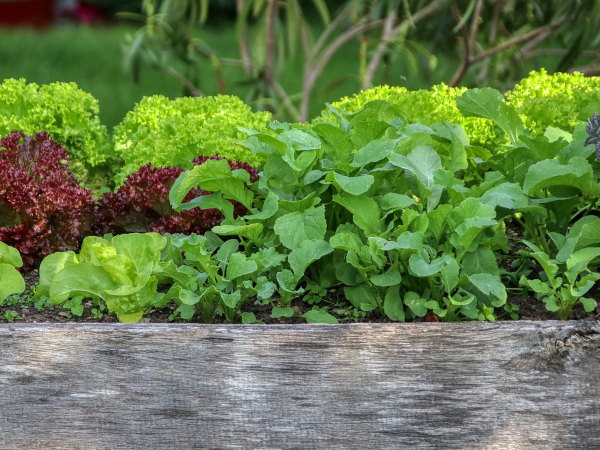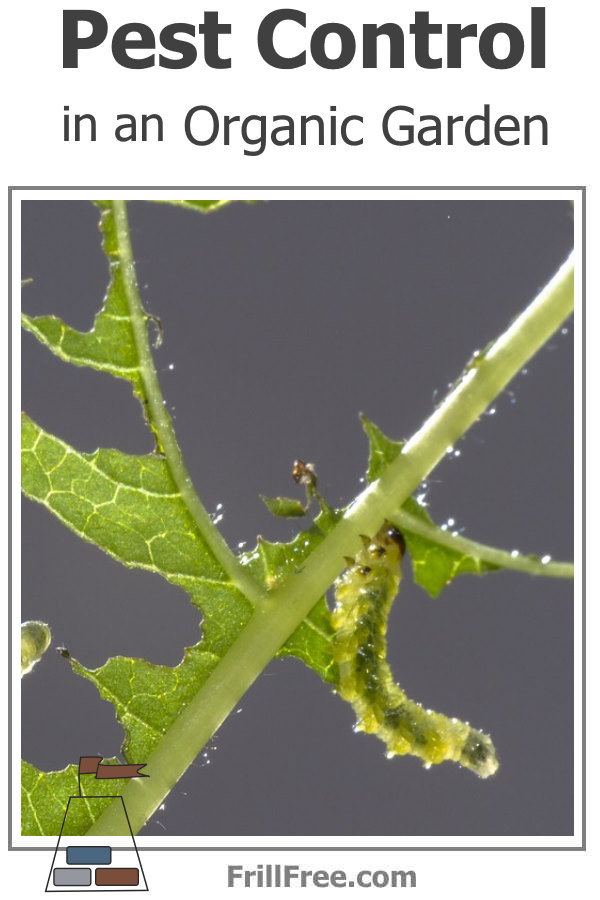- Homesteading
- Growing Vegetables
- Pest Control in an Organic Vegetable Garden
Pest Control in an Organic Garden
Clean and Effective
As spring approaches and the earth begins to thaw, there's an unmistakable excitement in the air.
Unfurling before us is the opportunity to till the soil, plant seeds, and watch as a vibrant vegetable garden comes to life. A crucial part of this process is ensuring adequate pest control in an organic vegetable garden.
For both new and seasoned gardeners alike, the game of growing organic vegetables is no easy task. It requires continuous learning, patience, and bouts of trial and error.
One of the most common challenges that you may face is how to handle pests without relying on harmful chemicals.
You're about to uncover the secrets of organic pest control.
Pests such as aphids, beetles, and caterpillars can spell disaster for your garden if not dealt with promptly. What’s more, it's essential to prevent problems before they start.
Prevention really is key to maintaining a pest-free garden. Monitor your garden regularly, keeping an eye out for the early signs of infestation.
Your garden is a complex ecosystem, where pests and their natural enemies can exist in harmony.
Maintaining a balance in this system is an integral component of organic pest control. Encourage beneficial insects and wildlife that prey on pest species, these will act as your "gardeners shadow," vigilant guards that protect your crops.
Companion planting is another powerful tool in the organic gardener's arsenal. This involves growing plants that deter pests alongside your vegetables.
Marigold, chives, and garlic are all known to repel a range of harmful insects and could prevent potentially devastating pest outbreaks.
Physical barriers can provide a hands-on solution against pests.
For instance, a well-placed net or row cover can prevent flying insects from reaching your crops, while copper tape can deter slugs and snails. Following the sentiment of damage control, row covers can safeguard your plants against many types of pests, providing a simple and efficient preventative measure.
Have the means to protect your plants handy for when you need them.
 Pest Control in an Organic Garden can be easier in raised beds
Pest Control in an Organic Garden can be easier in raised bedsGrowing in raised beds can be effective in areas of boggy soil, and the attendant pests, slugs and snails.
Make it harder for them to make the climb by nailing on copper strips around the beds, or sprinkle ashes or diatomaceous earth on the ground to form a barrier. They won't cross it as it hurts their tender slimy bodies.
Using organic sprays can be a highly effective counter to pests. Mixtures containing ingredients like garlic, neem oil, or chilies can deter or kill pests whilst being harmless to beneficial insects and, most importantly, humans.
Nevertheless, pests can sometimes get the upper hand despite your best efforts to prevent them. When that happens, targeted organic pesticides like Bacillus thuringiensis can help regain control. Remember, it's crucial to use these only as a last resort to minimize their impact on beneficial insects.
A well-maintained garden is naturally less attractive to pests.
Make sure to remove any weak plants, as they may already be infected. Get rid of the dead leaves and debris promptly, as these provide an excellent breeding ground for pests.
Consider adding compost or organic fertilizers to the soil to ensure your plants are robust and less prone to infestation.
Another effective pest control method is crop rotation. Planting the same crop in the same place repeatedly lets pests build up. By rotating your crops, those pests waiting in the soil will be starved out.
Pruning is crucial in maintaining plant health, facilitating better air circulation, and reducing the hiding places of pests. When pruning, ensure that your tools are clean and sharp, and always prune in dry weather to prevent the spread of disease.
With novice gardeners in mind, it's worth mentioning that there's no one-size-fits-all when it comes to pest control in an organic vegetable garden. Some pests may be problematic in some regions but non-existent in others.
It's crucial to be armed with knowledge regarding what pests
are common in your specific area. Become familiar with the types of issues you could face.
Interplanting is a technique that involves growing a variety of plants together to confuse pests. This can work as an effective form of pest control.
For example, a beetle that loves to snack on potato plants might leave your garden alone if the potatoes are hidden amongst beans or corn.
The classic 'three sisters' - corn, beans and squash, benefit each other in various ways;
- shelter for each other,
- support,
- and soil conditioning or nitrogen.
The pests are less likely to find their preferred type of plant in this situation, as they are mixed in with other plants they don't like.
Here's another pro tip: Always water your plants early in the morning. This way, the surface of your plants will be dry by evening, which is less conducive to pests multiplying. Wet leaves, especially overnight, can attract pests and diseases.
Ducks and chickens are also fantastic garden helpers. They have a strong appetite for snails, slugs, and other pests and are a natural way to keep pest populations under check. And, the bonus is, they'll provide you with fresh eggs too!
Fence out tender new seedlings, as chickens will scratch to find the bugs in the soil and overturn the new seedings or transplants at the same time. Use upside down cloches or baskets to protect individual plants, or put boards around the base of them.
Preventing pest invasions in your organic vegetable garden doesn't just protect your crops; it's also part of a global effort to reduce the reliance on chemical pesticides.
By removing these chemicals from our gardening practices, we promote healthier soils, clear waters, and safer environments for ourselves and our wildlife.
Pest control in an organic vegetable garden can feel like a challenge, especially when starting fresh. The fear of losing crops can often lure us towards quick chemical infusions. But with the right tools and information, it's totally possible to grow lush, organic vegetables without compromising the environment.
Finally, don't fall into the trap of expecting perfection. A few bugs or bites on your vegetables aren't necessarily a cause for concern. It's not about having flawless plants but rather about achieving a holistic balance in your garden environment.
Thus, keeping both the health of your veggies and your local ecosystem in mind. By promoting diversity, working with nature, not against it, and preemptively addressing potential issues, organic gardening and effective pest control become a being more than a doing. It becomes a way of life.















